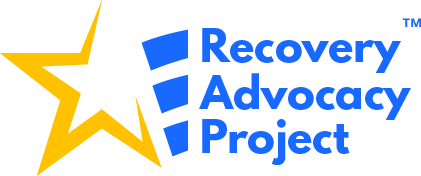Write a Letter to the Editor
The Recovery Advocacy Project (RAP) is committed to giving people of all pathways of recovery, family members, and supporters of recovery the grassroots organizing tools to think and act locally.
Many organizers have elevated the issues they are passionate about through the media with a Letter to the Editor to reach a larger audience and highlight solutions.
This guide will assist in having your voice heard on the issues you care about. It may be helpful to review the HOW TO Effectively speak out as a Recovery Advocate guide to get some pointers around language prior to writing your Letter to the Editor.
The Recovery Advocacy Project recognizes the talents of people in recovery and the expertise that many organizations provide across the country. This HOW TO Guide is one in a series written in partnership with the story-telling platform Bright Story Shine .
You may find that many counties, state agencies, or local organizations have already created one of these resources. In the spirit of collaboration and connection, find out if you can help update it, or recategorize into the areas listed below.
- This step-by-step HOW TO will help you understand how to submit a letter to the editor.
1. What is a letter to the editor?
A brief (no more than approx. 300 words), targeted message directed to media outlets like newspapers, magazines, or online news outlets and platforms.
2. Why write it?
Writing a letter to the editor is a way to directly engage with a larger audience to share your message. These letters are also a great way to bring awareness to recovery advocacy topics, influence public opinion, educate policymakers or promote the work you do in your community.
Writing a letter to the editor can also be a strategic way to generate conversations about the recovery advocacy issues that are important to you.
3. Tips for a strong letter to the editor
- Begin with greeting: “To the Editor” or it can also address the name of the editor if known.
- Open with a sentence that grabs readers attention. Ask yourself, “what would captivate and engage me as a reader?”
- Explain key points in the first paragraph: your “What”. The most effective letters are direct and to the point right off the bat. Since word count is limited, there is no need to make the reader wait.
- Explain your “Why”: Why the issue is important to you and your community. Sticking to one topic is best. This is also the space to share a bit of your connection to recovery and why it is important to speak out. Again, it may be helpful to review this language guide for this component of your letter.
- State opinion about what should be done about a particular issue. Be solution oriented.
- Sign letter
4. What to avoid in your letter to the editor
- Avoid bringing up or spending too much energy on the potential opposition’s point of view unless to quickly reference it with purpose or quick rebuttal.
- Do not share your personal contact information in the letter like your address, email, or phone number. Be broad if you do (ex. I live in town/city/county)
- Avoid going over the word limit allowed.
- It is rare a letter is accepted by “Anonymous”
- Make it brief! Usually, no longer than 300 words
- Bring more attention to an issue or issues by strategically targeting multiple media outlets to send letters to around the same time frame.
- Keep it relevant and timely!
- Use urgent and confident language while making your case.
- Introduce your main point early on in the letter
- Stick to the guidelines provided by the media outlet
- Your audience is the reader as much as it is the Editor.
- If you are writing about an upcoming event or action your organization is taking, you may want to write a press release instead, or along with a letter to the Editor
- Ask a friend, colleague, or someone in your network to read the letter prior to submitting it. Having someone’s feedback, and a spelling and grammar check, is important!
- Template to follow for your Letter to the Editor: https://www.naeyc.org/our-work/public-policy-advocacy/letter-editor-template
- Sample Letters to the Editor from the Recovery Community: Skye Boughman from the RAP Wisconsin Team wrote an excellent Letter titled Covid 19 Pandemic Puts Strain on Recovery Community
